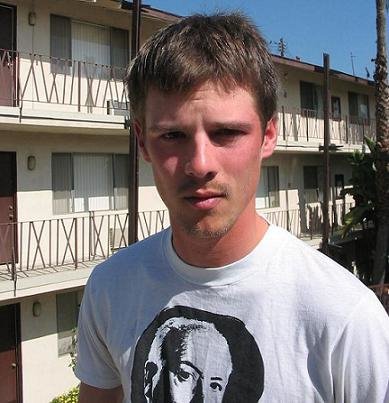Oldboy (2003)
Director: Chan-wook Park
Starring: Min-sik Choi, Ji-tae Yu, Hye-jeong Kang
Picture a set-up in the vein of the graphic novel, 100 Bullets: a drunk Korean business man, Oh Daesu, is kidnapped on his daughter's birthday and locked in a dank hotel room for 15 years during which time he becomes a little...off. On the day of his 15th year, he wakes up outside on a rooftop wearing a tailor-made suit and shades with a new haircut. Later, a suspicious homeless man hands him off a cell phone and wallet full of cash. Now the quest begins in earnest. Who is the shadow figure that has willingly created the very force that must destroy him. Why has Oh Daesu been put through such horrors? Why so elaborate?
Even as a character within the narrative, this shadow figure--both Oh Daesu's tormentor and his benefactor--must be self-aware as a character within a narrative. This scenario doesn't happen; like I mentioned before, it's a dramatic setup. Chan-wook Park has created a hermetically sealed world, a fishbowl, that creates and enforces its own rules. That is, this world sets up rules such that there can be only one outcome. By the end of the setup about twenty minutes into the film, we already know how the film must end. We watch to see how it ends. Even Oh Daesu's seemingly random kidnapping was and inevitable event. Here is a world that is pure pre-determinism. The only odd thing is that, while the film and most of the characters are self-aware, Oh Daesu isn't. He thinks it's all real, and yet he follows every rule that he is supposed to follow--unconsciously?--leading us to our pre-determined conclusion. On the other hand, how often is the puppet aware of the strings of a puppetmaster? The film emphasizes its created world--and the world-within-the-world created for Oh Daesu--as one in which we can look, but also one from which the inhabitants can look back at us. Just as the figure has created Oh Daesu's world for his own amusement, so has Park created the figure's world for ours. Like check before checkmate, like dominoes, like a Greek tragedy, all the roles are arranged and the events are clearly laid out. We know the beginning and the end; now we just have to wait for the first domino to tip.
To say that Oldboy is Tarantino-esque in style is not entirely accurate. The film borrows much more from Beat Takeshi's work than from Tarantino's, especially in comedic use of editing. Takeshi will shoot several tableau shots in a sequence with the final shot being the punchline. It's a surprisingly direct way to get a laugh: literally S1+S2...+SX=punchline. An example (though one that doesn't employ all tableau shots) happens in Takeshi's film Boiling Point. Two characters are selling a motorbike to a third rich kid. One kid reports to the other the rich kid's ridiculousness. "He doesn't want to go on a test ride!" "He doesn't want a helmet!" The two chuckle until the kid rides off past them to the road. Hold a few seconds, then cut to a medium shot of the forlorn rich kid sitting on pavement with a bloody nose. Hold. Cut to long shot of a decimated bike and a rear-ended car as the other driver stands examining the damage. Let's also not forget that Takeshi gets a little violent in his own films also. A warning: the film is only moderately violent, but those with fertile imaginations will be cringing a lot watching Oldboy
While Oldboy may not have deserved the Grand Prix at Cannes (I don't know--I haven't seen the runner-up-in-spirit, Wong Kar-Wai's 2046), it's a great film from Korea's New Wave that as funny and exciting as it wants to be (that's a lot). It's a Greek tragedy set in modern day Korea with all the violence and themes that entails, but how many Greek plays have you seen in which the lead character eats a live squid right in front of you?
July 8
computer, mid-day
D


2 Comments:
What is the Korean New Wave???
1:02 PM
This site should give you an example of what the Korean New Wave is. Essentially, South Korea's cinema has been on fire for the past five years. What it boils down to is just making some damn fine films. I recommend you check out a film called Volcano High and why not the movies discussed in the article? I haven't seen the movies the article talks about, but I'm sure they're good.
11:53 PM
Post a Comment
<< Home